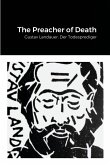Modernity has driven morality out of the literary field. It is an obvious fact. To do so, the critics had to choose the literary texts which brought the demonstration of the validity of their hypothesis. But the logic of the confirmation is not that of the refutation. So we should not be surprised to see that this exclusion has become ineffective over time. One wanted to chase morality, here it comes back at a gallop, if only under the modality of "the moral lesson of history". Can literature have as its goal to show behaviors other than those required in public life? If so, this means that literature is the explicit and/or implicit answer to a public or political question. The answer in question, not being of the order of conformity, would deviate from the critical doxa, would upset the existing norms and rules or would simply propose new paths by opening up as yet unmentionable perspectives. This is what this study tries to explore according to a "biocultural" approach.
Bitte wählen Sie Ihr Anliegen aus.
Rechnungen
Retourenschein anfordern
Bestellstatus
Storno








